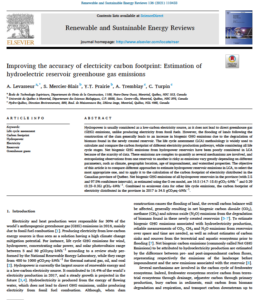The Climate is Changing. So are We.
5 minute read
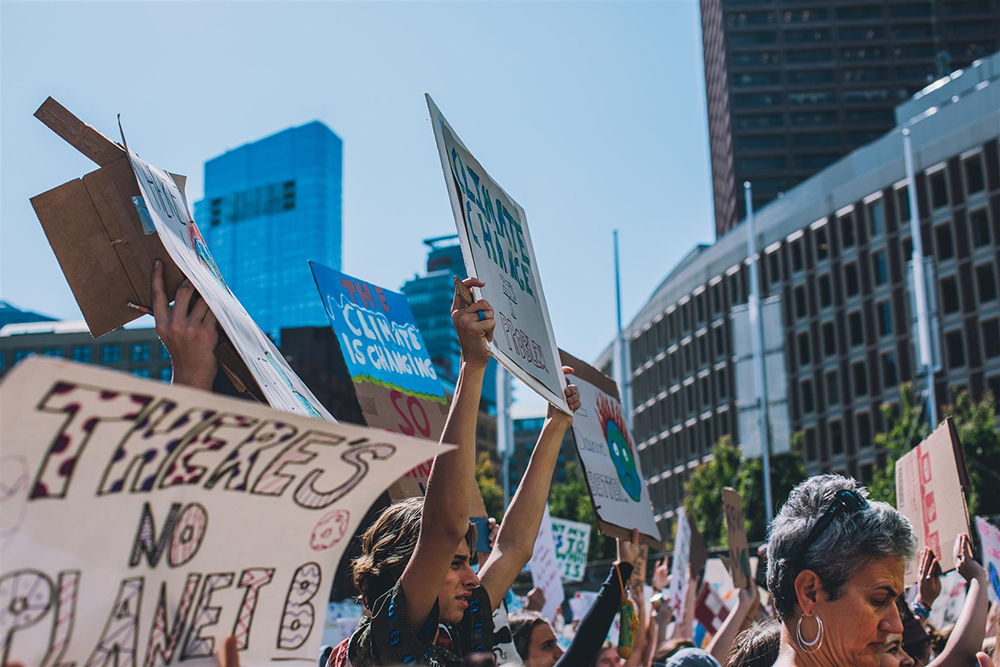
PAULA CHAMPAGNE Young climate change activists participate in the 2019 Global Climate Strike in Boston, a global event that drew approximately four million people around the world.
The climate is changing. The concentration of carbon dioxide (CO2)—one of the atmosphere’s leading heat-trapping gases—is at its highest level in human history. Climate scientists warn that significant actions are necessary to slow climate change and its impacts.
Every region is experiencing its own impacts of climate change. In recent decades in the Northeast, researchers say winters are getting warmer and shorter, major rainfall events are increasing, and weather patterns are becoming less predictable and more extreme. Rising sea levels have also led to dangerous storm surges threatening coastal communities.
“Science is clear that climate is changing dramatically,” says Dr. Sarah Nelson, AMC’s director of research and a biogeochemist. “Our region is warming faster than the nation, and shifting seasons affect many of the cold-dependent species and processes like snow accumulation and melt that define our mountain ecosystems.”
AMC’s mission has always been centered on exploring and protecting outdoors spaces. And climate change threatens the natural resources and recreational spaces we work to protect.
Climate change is the existential crisis of our time. Building on our history, AMC has much to bring to the fight to combat it.
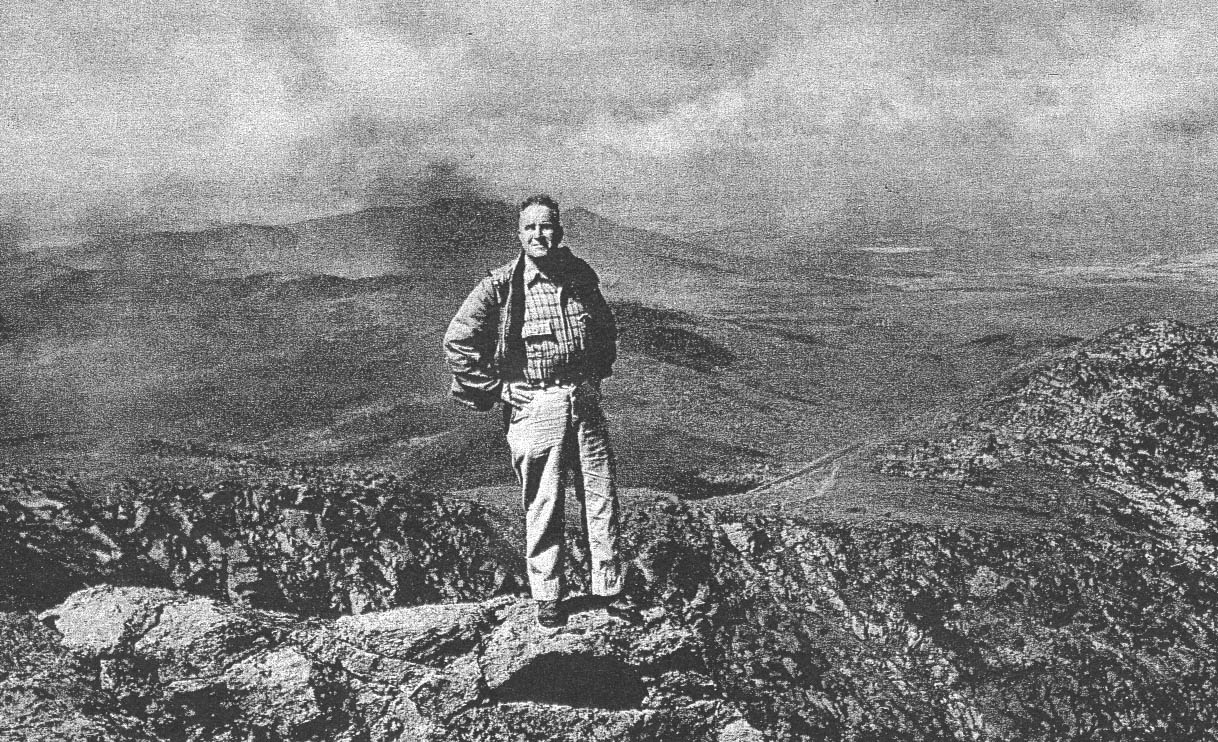
AMC LIBRARY AND ARCHIVE Former AMC hutmaster Joe Dodge began collecting air quality samples in the White Mountains in the 1930s, a precursor to AMC’s research of air pollution and climate change today.
A History of Research and Advocacy
AMC’s conservation work and scientific research has been a crucial part of our mission to foster enjoyment of the outdoors since its founding in 1876. Edward Pickering, a professor of physics and astronomy at Massachusetts Institute of Technology, co-founded the organization with a mission “to explore the mountains of New England and adjacent regions, both for scientific and artistic purposes.”
In the early 1930s, Joe Dodge—long-time manager at AMC’s Pinkham Notch Visitor Center and high huts as well as co-founder of the Mount Washington Observatory—began recording weather observations in Pinkham Notch and at the summit of Mount Washington. While Dodge wasn’t collecting these data with climate change in mind, his work helped lay the foundation for nearly a century of AMC research and provides some of the best longitudinal data for alpine weather in the White Mountains. That’s because climatic trends can only be established over a long timeframe—decades or even centuries.
AMC’s scientists have examined these long-term weather data in collaboration with Mount Washington Observatory and Plymouth State University. They found that the White Mountain National Forest experienced overall warming, especially below treeline.
Today, Nelson leads an AMC research team that, among many things, studies the impacts of climate change in the Northeast, often working with organizations such as Harvard School of Public Health, Mount Washington Observatory, University of Maine, and Hubbard Brook Research Foundation. Recent projects include studies on the impact of climate change on alpine ecosystems, the changing length and intensity of winter, and carbon sequestration on AMC’s land in Maine.
All of this work strengthens AMC’s mission to foster outdoor recreation opportunities. For example, a shorter, less snowy winter means more strain on hiking trails, since more people will use this infrastructure as the spring, summer, and fall become longer. Likewise, a shorter, less snowy winter means fewer opportunities for winter sports, which hurts local economies that depend on winter tourism. Climate change also affects flora and fauna that make the outdoor spaces we enjoy so special.
Browse our entire series on the science of climate change and read more about AMC’s work to combat it through the decades.
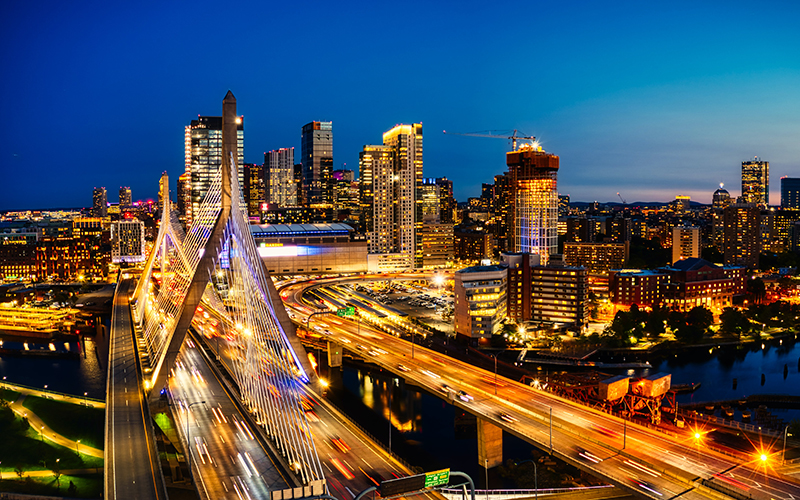
CAMERON VENTI / UNSPLASH Driving personal vehicles is one of the leading contributors to air pollution and greenhouse gas emissions.
We Know What We Need to Do
In the upper atmosphere, greenhouse gases, including CO2, methane, and nitrous oxide, trap heat from the sun that is reflected back from the Earth’s surface. This cycle is known as the greenhouse effect. The more CO2 and other greenhouse gases concentrated in the atmosphere, the more heat is trapped. The burning of fossil fuels produces the majority of these greenhouse gas emissions.
“Emissions drive temperature, and therefore climate as we measure it,” Nelson says. “So, it matters if we reduce our carbon emissions.”
Human sources from industry, agriculture, and transportation account for the lion’s share of emissions. To preserve the integrity and health of open spaces that are put at risk by these emissions and other pollutants, we must reduce our dependence on fossil fuels.
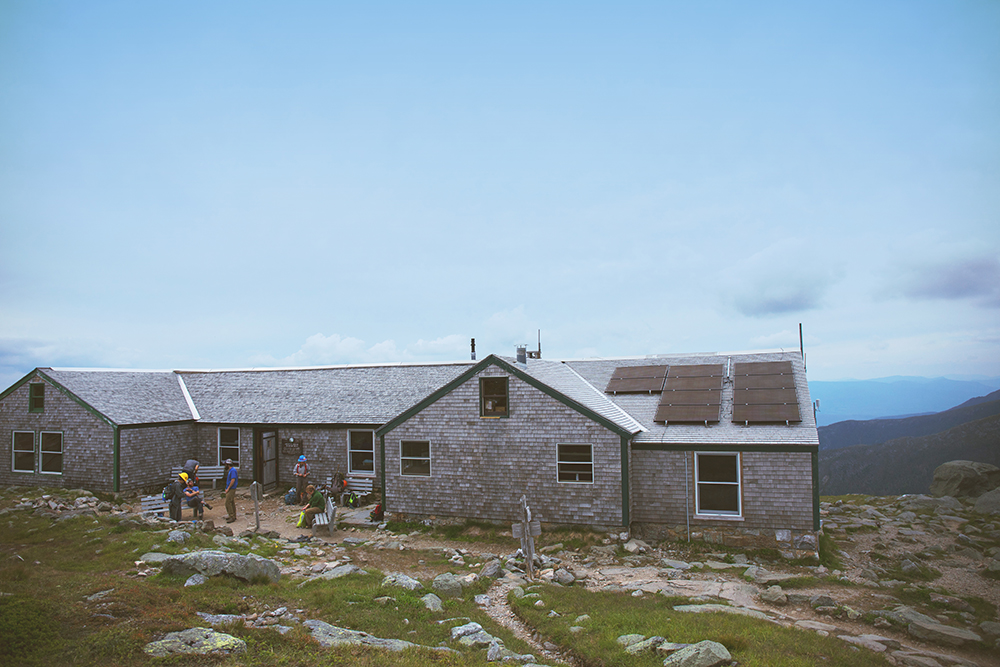
PAULA CHAMPAGNE AMC’s Lakes of the Clouds Hut in New Hampshire’s Presidential Range serves as a home base for climate and air quality research in the White Mountains and models the organization’s commitment to solar energy—part of our pledge to reach net zero carbon emissions by no later than 2050.
AMC’s Net Zero Pledge
AMC recognizes we must reduce our own carbon footprint. As part of AMC 150, AMC’s current strategic vision, the Board of Directors has approved a goal of reducing our carbon emissions 45 percent from 2010 levels by 2030 and getting to net zero emissions no later than 2050. This target is based on the current recommendation from the Intergovernmental Panel on Climate Change, a body of the United Nations that studies climate change.
To reach net zero, we will pursue energy efficiency for facilities and staff transportation, transition to renewable energy where possible, and offset any unpreventable emissions by storing carbon in well-managed forests. A strategic plan is set to be released in early 2022, and we welcome your financial support in helping us reach our goal.
Guest transportation to AMC lodges and facilities are not included in AMC’s official carbon footprint tallies, but they represent significant emissions. Soon, AMC guests will have the option of balancing out their personal carbon footprint by purchasing offset credits from AMC’s sustainably managed Maine Woods Initiative forest projects.
“We [AMC] encourage people to drive long distances to remote locations for fun, and in that sense, we are part of the problem. We need to take ownership of that,” says David Publicover, AMC’s senior staff scientist. Publicover is helping to develop AMC’s net zero strategic plan, an effort led by AMC Kenneth Kimball Research Fellow Arcadia Lee.
While organization-level changes are necessary to curb emissions, large-scale progress requires collective action and advocacy. That’s why AMC advocates for state, regional, and federal policies that reduce emissions and slow climate change. Some of these policies are greenhouse gas reduction incentives, such as “cap and invest” programs, including the regional Transportation and Climate Initiative. Others are “natural climate change solutions” that focus on the ability of well-managed forests to sequester carbon from the atmosphere, like AMC’s Maine Woods Initiative in the 100-Mile Wilderness.
The climate crisis is the conservation issue of our lifetime, and you—as an AMC member, volunteer, or supporter—are our crucial partner in addressing it. Success will require collective hard work, but AMC is committed to the task.
The post The Climate is Changing. So are We. appeared first on Appalachian Mountain Club.

